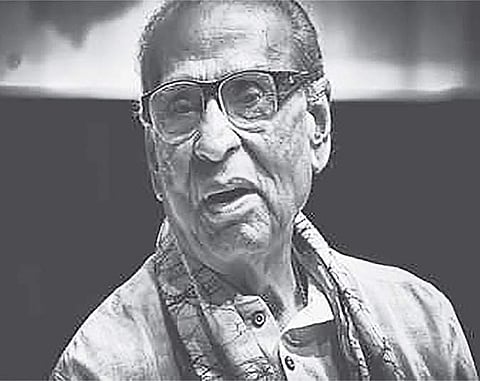

Veteran Rabindra Sangeet singer Dwijen Mukherjee passed away on Monday at his residence in Salt Lake at 1.30 pm. Years back when I met him at his Salt Lake residence, Mukherjee appeared dignified and composed, dressed in a spotless white dhoti and Bengali shirt. Exchanging greetings, he said, “I was never a Hemanta Mukherjee clone. Please listen to my Ore Amar Mon and Hemantada’s Ke Jane Ka Ghanta in Sonar Khacha. Do you hear two Hemanta Mukherjee’s singing? I have high regards for him.”
“Jago Tumi Jago was my ode to Goddess Durga for her arrival. The narration by Birendra Krishna Bhadra had a divine effect for Mahalaya. The eight hundred Tagore songs I recorded remain my best rendering. I remember Pankaj Mullick praising my singing,” he said.
If Jouban Tarange had the rock and roll flavour, Pallabi Go had a rare romantic lilt. Explaining the base of his super hit Bengali numbers the grand crooner says, “They were the creations of Nachiketa Ghosh and Salil Chowdhury.”
It was Dev Anand who personally agreed to Dwijen Mukherjee rendering Ei Dil Kahan Teri the super hit solo and Phir Ekbar Kaho the brilliant duet with Lata Mangeshkar in Maya. Dwijen Mukherjee remembers with respect, “It was not an easy task for me to sing for a top hero like Devsaab in 1961. The first song had the essence of pathos so well tuned by Salil Chowdhury. It had humming in the background by Lata Mangeshkar. The duet was inspired by Pat Boon’s Anastasia and had a romantic tone.”
His last words were, “My life is so well defined by the inimitable composition I sang for Salil Chowdhury, Ek Din Phire Jabo Chole (One day I will go away).”
(The author writes on art and culture.)